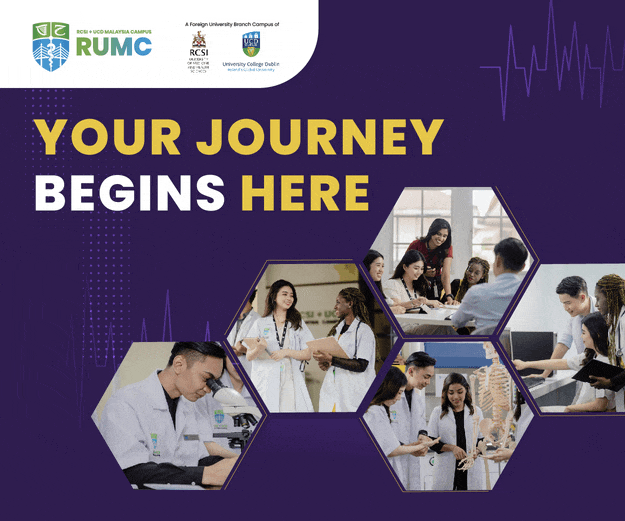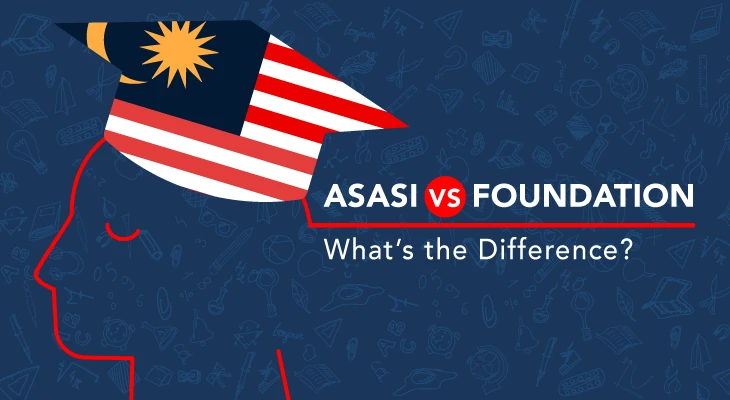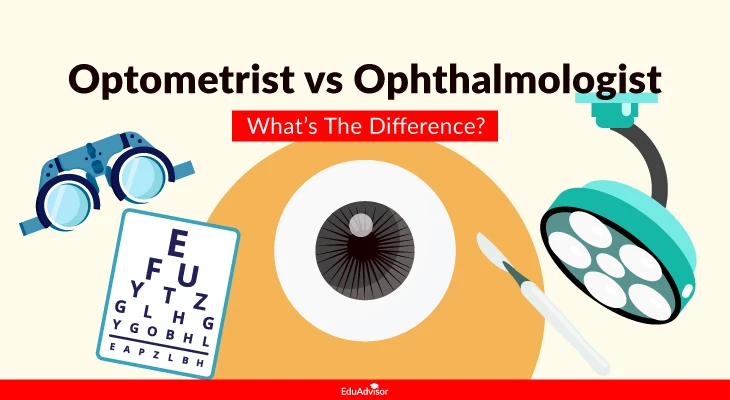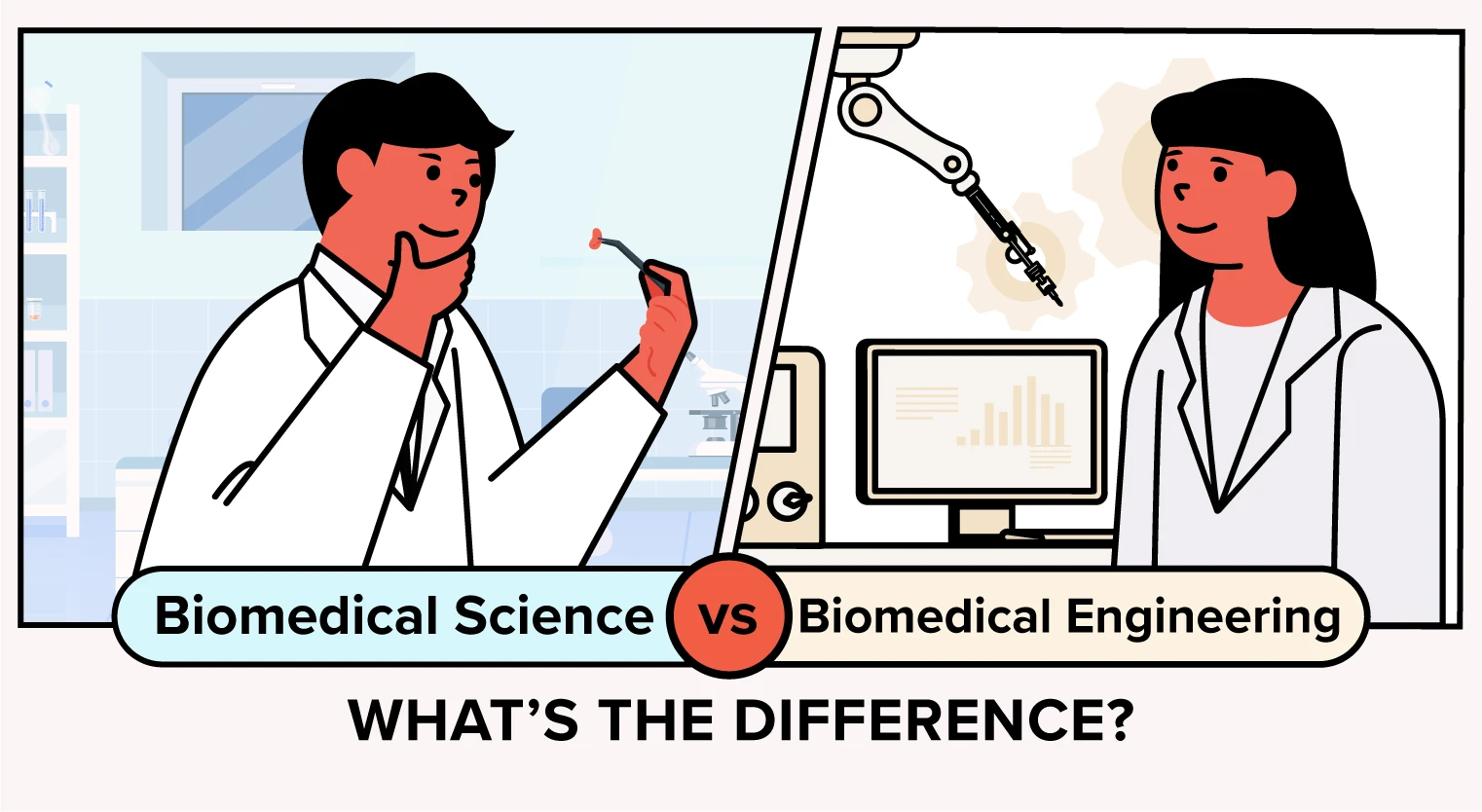Medicine vs Biomedical Science: What’s the Difference?
What’s the difference between medicine and biomedical science? Here’s a quick rundown on how the two fields differ.
Updated 23 May 2022
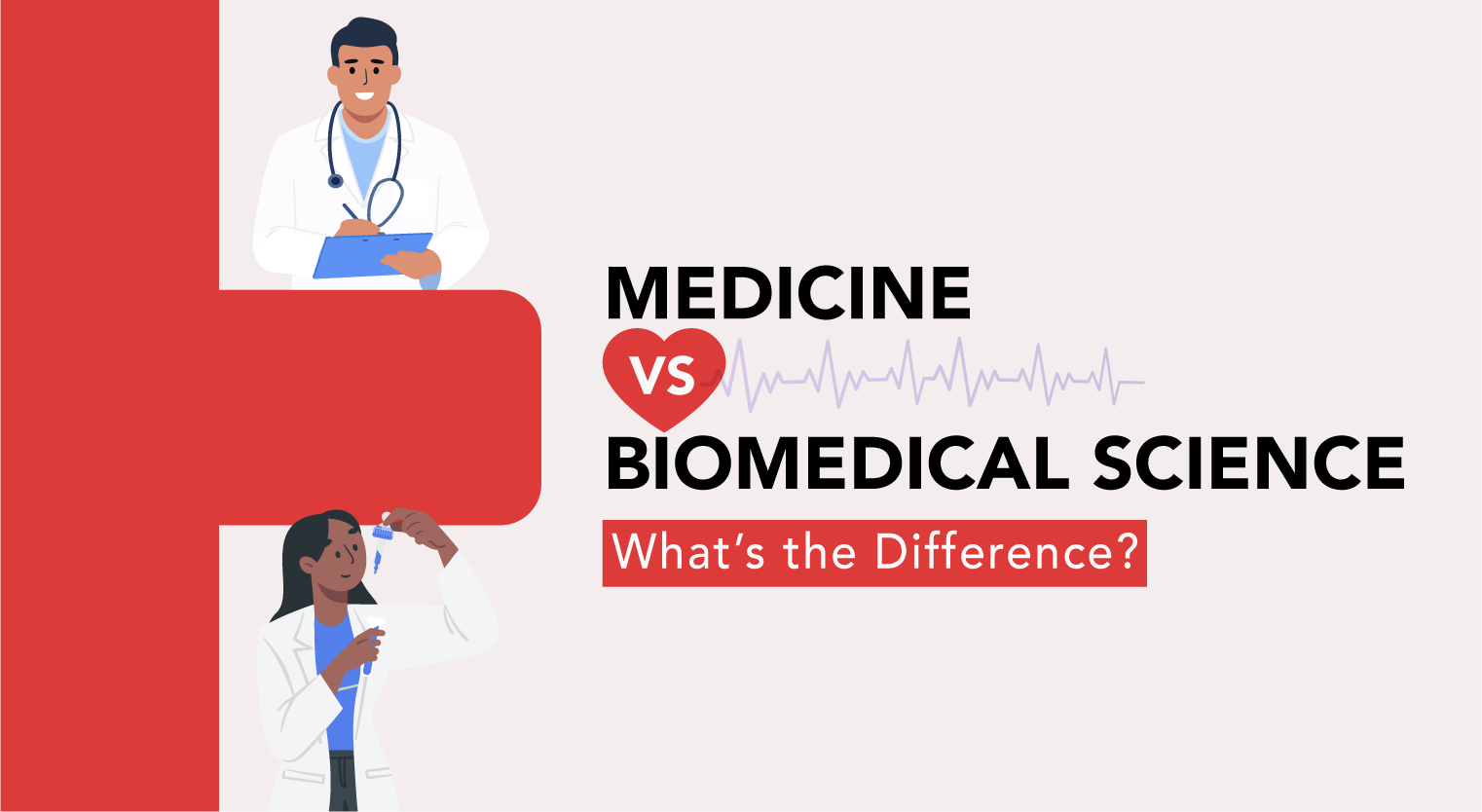
If you’re interested in saving lives, developing revolutionary drugs for diseases or just generally passionate about the healthcare industry, perhaps you’ve thought about studying medicine or biomedical science.
But what’s the difference between the two fields? And how do you decide which to choose? Here are some of the top differences between medicine and biomedical science.
#1. Medicine is diagnosing diseases and treating patients while biomedical science is about the research for treatment
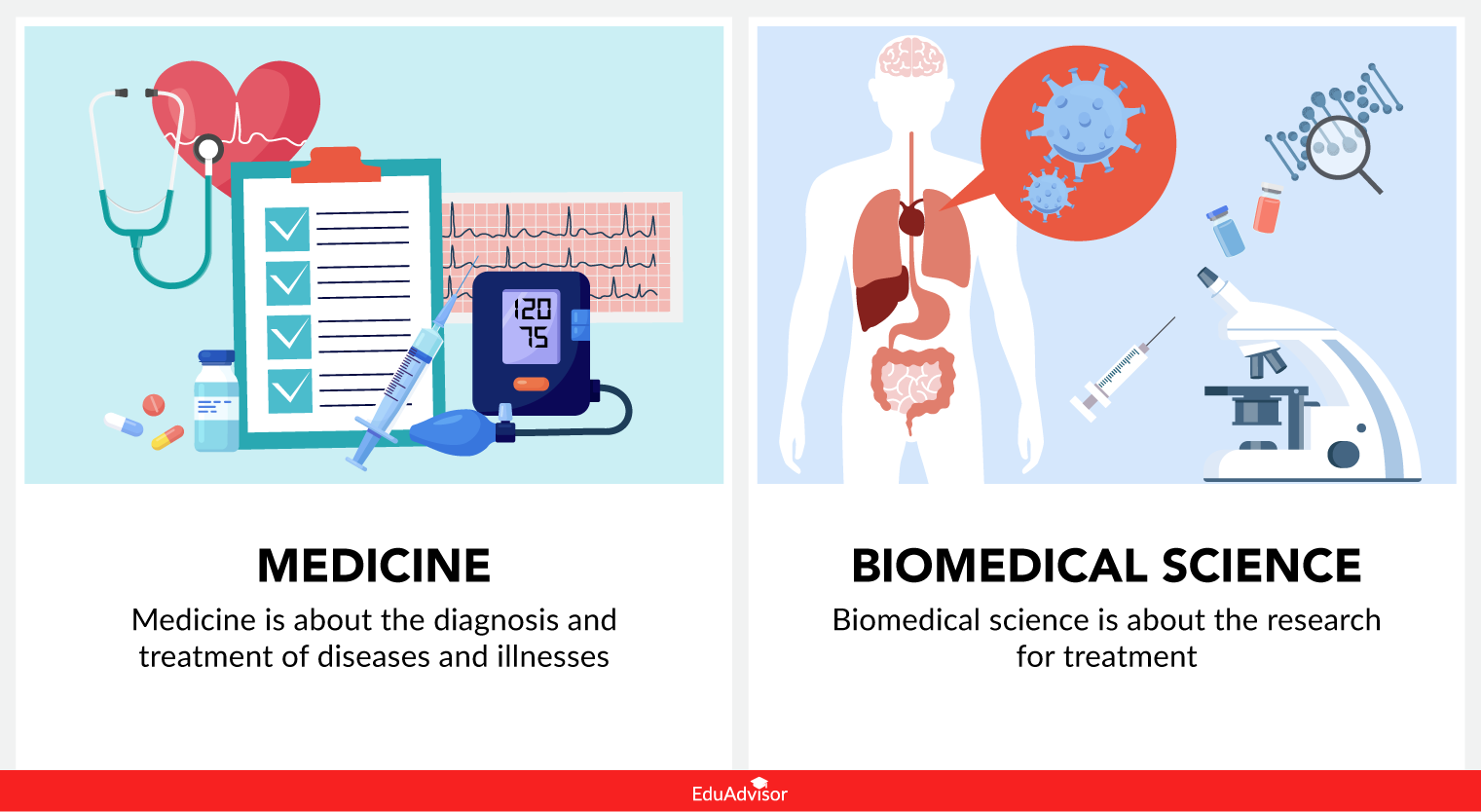
Both fields are about saving and improving human life but they go about it in different ways.
Medicine is about the use of science and knowledge of the human body to diagnose, treat and prevent a disease, sickness or injury. Doctors use their scientific knowledge to treat patients, impacting their lives in a direct manner.
Biomedical science, on the other hand, is concerned with researching and studying the human body to drive advancements in the medical field. Biomedical scientists conduct research and experiments to study a variety of conditions which can then be used in the development of new drugs and treatments.
#2. The curriculum for a medical degree is more extensive compared to biomedical science
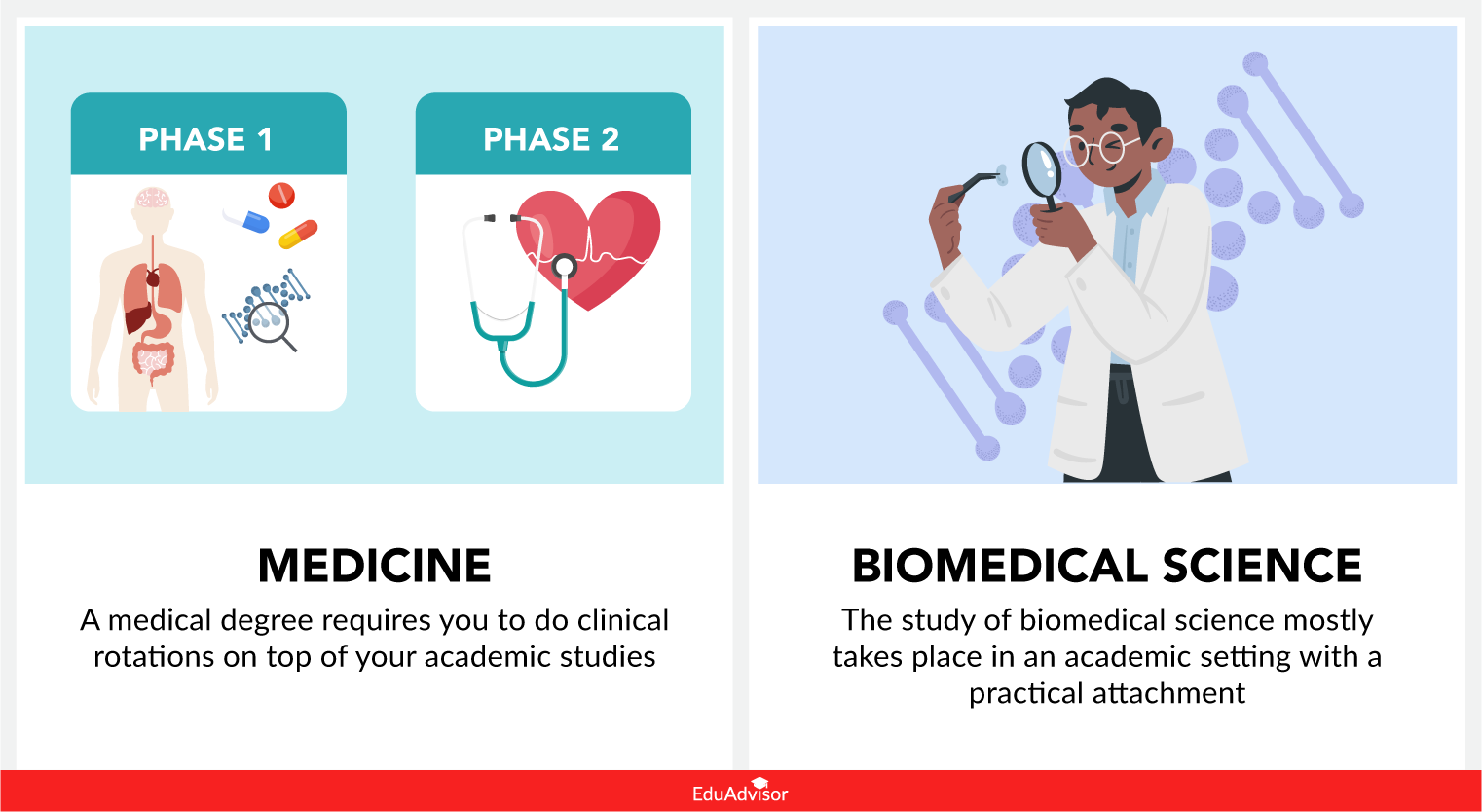
The medical programme is usually divided into 2 separate phases. In the first phase, you will focus on pre-clinical training where you’ll learn about the basics of medical science through subjects like anatomy, biochemistry, pharmacology and many more. The learning process takes place in an academic setting as you focus on the theoretical aspect of medicine.
Subsequently, you’ll move on to the second phase where you begin your clinical training. As a medical student, you can expect to do clinical rotations at hospitals and clinics where you’ll practise what you’ve learned so far. You will learn to deal with patients and experience working under different departments such as surgery, paediatrics and internal medicine.
The biomedical science programme, comparatively, has a pretty standard structure. You will spend time doing lab work and learning research methodology but your study will mostly take place in an academic setting. There will be internships and practical attachments but they won’t be as comprehensive as the medical clinical training.

#3. Medicine has higher entry requirements compared to biomedical science
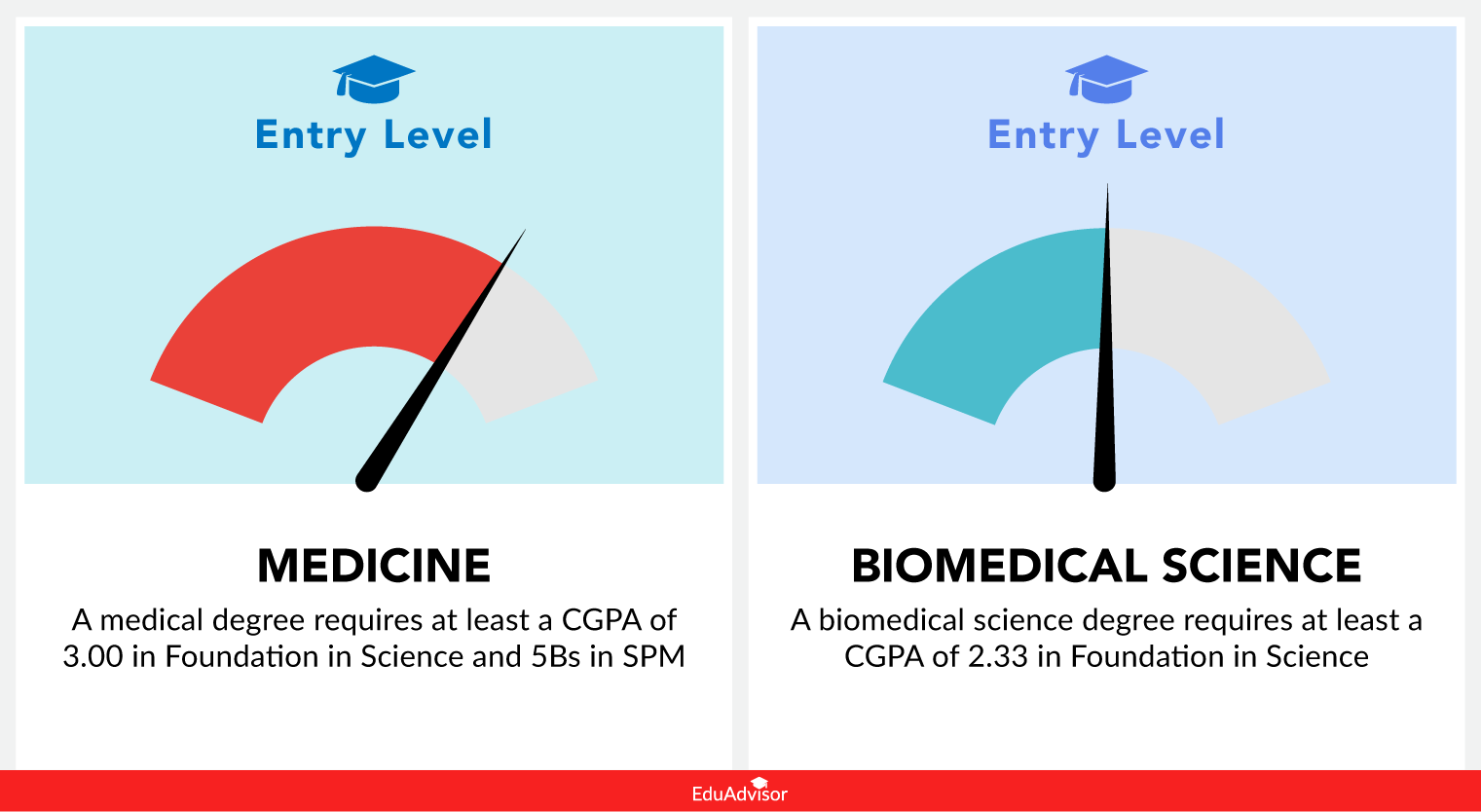
Medicine, being a specialised field, typically has a higher entry requirement. To get into a medical degree programme, you’ll need at least a CGPA of 3.00 in Foundation in Science and 5Bs in SPM including Biology, Chemistry, Physics and Mathematics or Additional Mathematics. If you go through the A Levels route, you’ll need either a BBB, ABC or AAC in Biology, Chemistry and Physics or Mathematics.
Meanwhile, a biomedical science degree usually calls for a minimum CGPA of 2.33 in Foundation in Science or 2Ds in A Levels in two of the following subjects: Biology, Chemistry, and Physics or Mathematics.
Apply for university with EduAdvisor
Secure scholarships and more when you apply to any of our 100+ partner universities.
Start now#4. You need to have a licence to practise medicine while biomedical science encourages postgraduate qualification
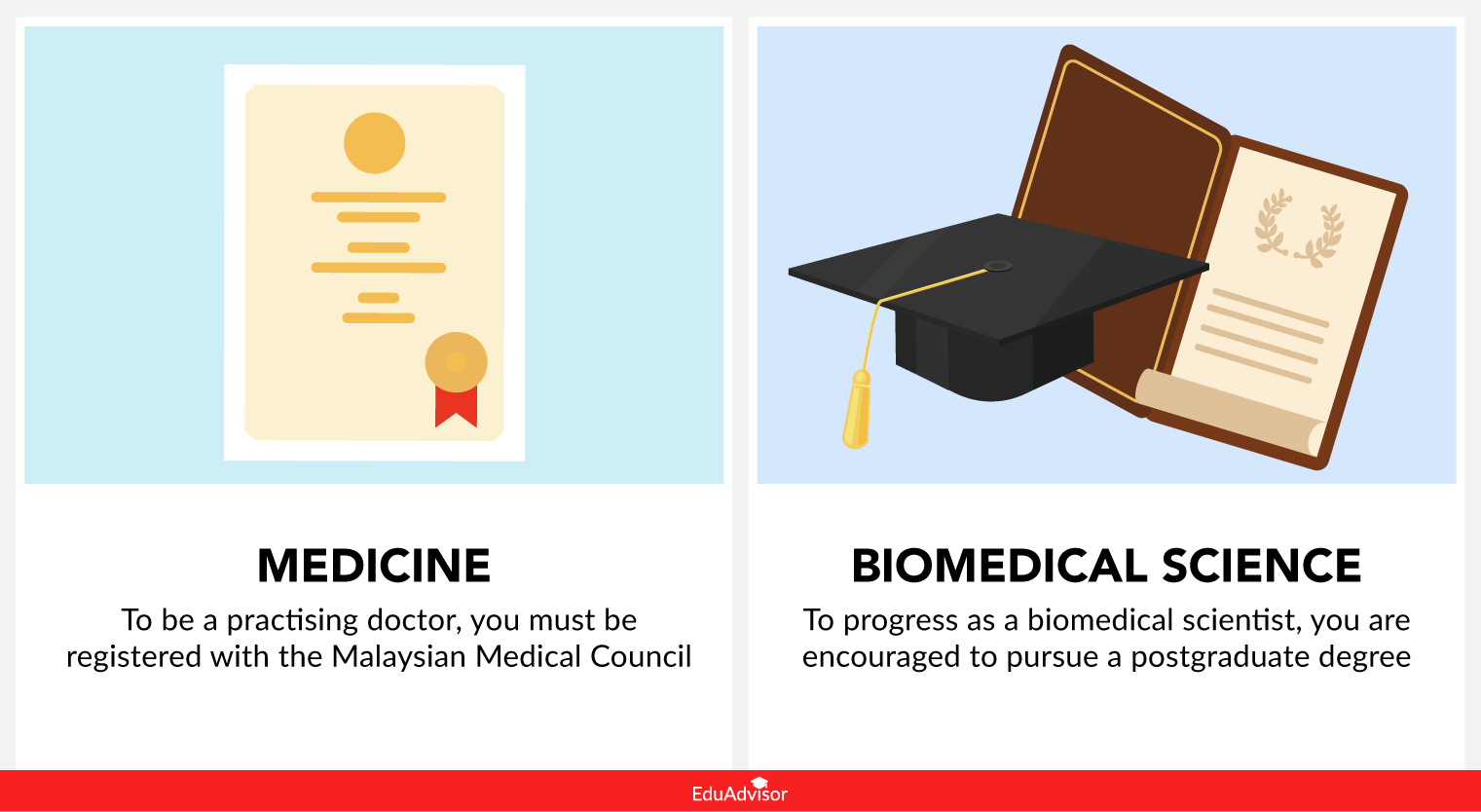
The path to becoming a doctor is long and hard — but it’s a given since you are directly responsible for saving human lives. To be a doctor in Malaysia, you not only need to complete a medical degree that’s recognised by the Malaysian Medical Council (MMC), but you also need to undergo 2 years of housemanship in government hospitals. Only after completing these steps can you register with MMC to be a qualified medical officer and practise medicine.
Comparatively, the journey to become a biomedical scientist is less intensive. You don’t really need any extra certification to start practising your craft after graduation. However, it is advised that you pursue a postgraduate qualification to progress in your career as a biomedical scientist.
#5. It takes longer to become a doctor than to become a biomedical scientist
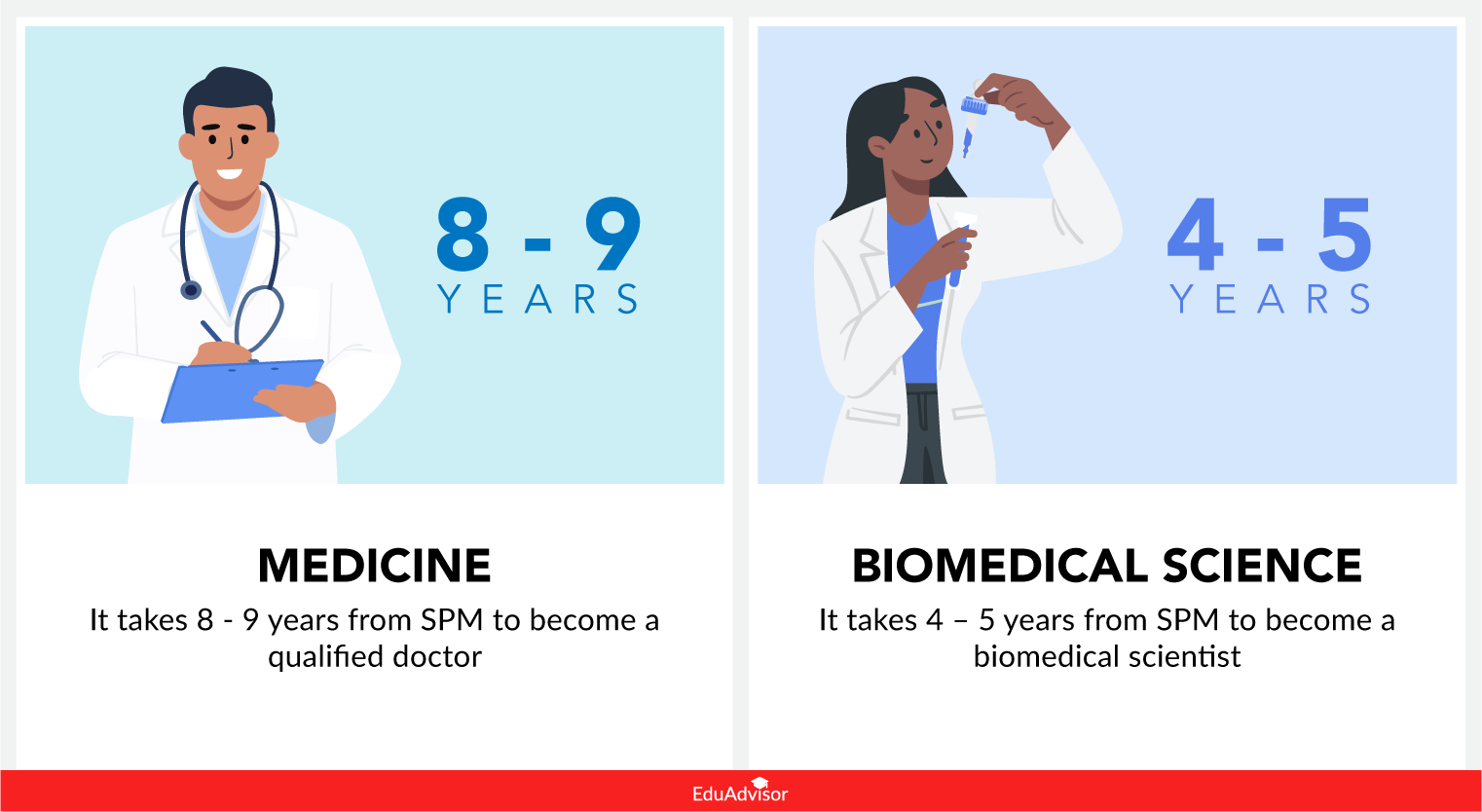
To become a doctor from SPM, you’ll need to do a pre-university or foundation programme (1 – 2 years), complete a medical degree (5 years) and complete your housemanship (2 years). In general, it will take you 8 - 9 years from SPM to become a qualified doctor.
For biomedical science graduates, your pathway is much shorter. You’ll need to complete a pre-university programme (1 – 2 years) before pursuing a degree in biomedical science (3 – 4 years). With no requirement for any additional certification and licensing, you can immediately start working after your degree. This brings your total study duration to 4 – 5 years from SPM to become a biomedical scientist.

#6. Doctors work with patients while biomedical scientists work in labs
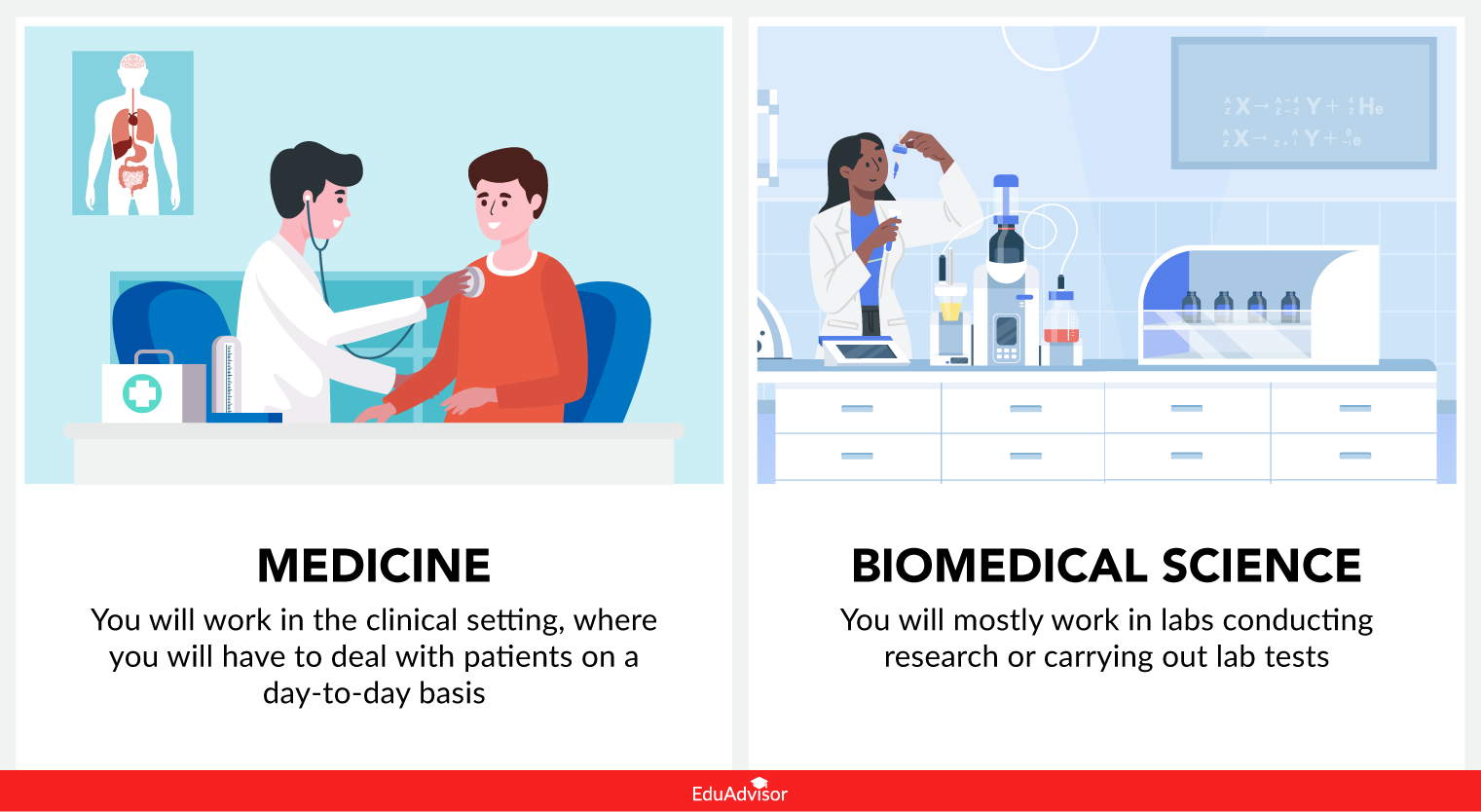
A medical degree typically leads to a career as a doctor. Regardless of your role or medical specialty, you will be dealing with patients on a day-to-day basis. This means actively listening to patients to understand their symptoms, explaining treatments or medical procedures in simple terms and potentially breaking bad news in an empathetic manner. This makes it a great option for people who have an affinity for social interactions.
On the other hand, biomedical scientists often work in labs conducting research or carrying lab tests to support the diagnosis or treatment of disease. This involves working with computers, microscopes and other sophisticated and advanced lab equipment in your day-to-day work. This makes it a great field for introverts who prefer to work away from people.
Choosing a field to pursue can be hard, especially when you don’t know the difference between all the fields in the first place. Hopefully, this short guide will help you in your decision.


